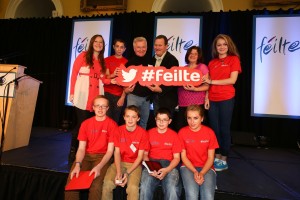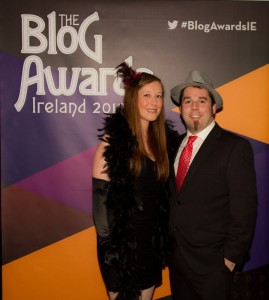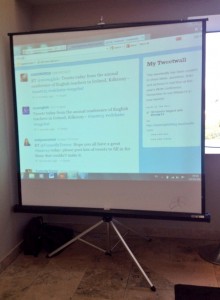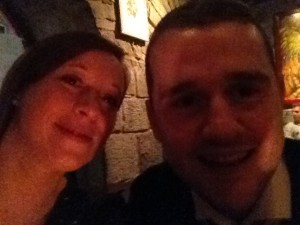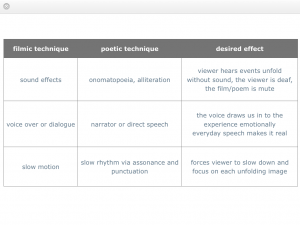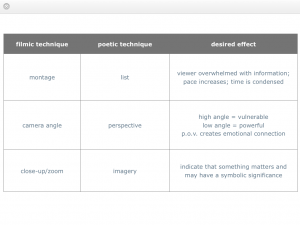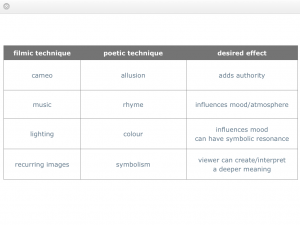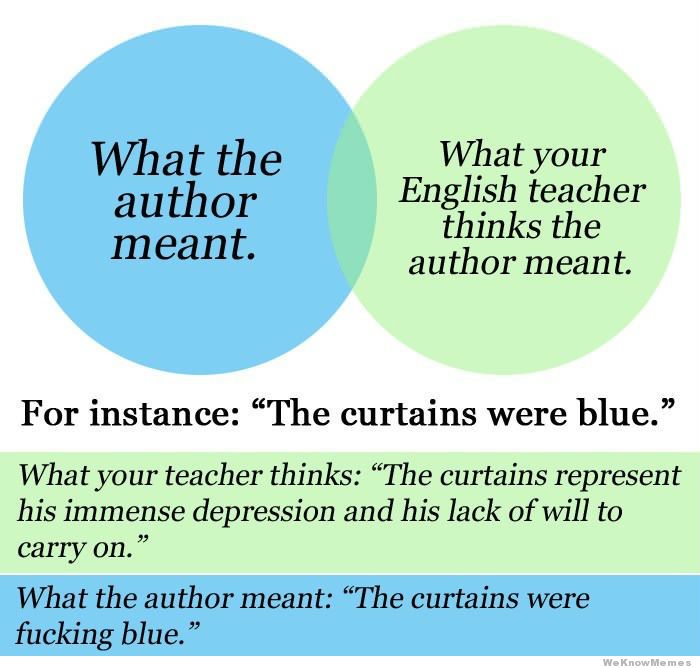*This post first appeared on www.congregation.ie on 24th November 2013
I’ve been experimenting with social media in education for a couple of years now. My students have created Facebook pages for Romeo & Juliet; they’ve written, recorded and promoted their own original songs via soundcloud and youtube; recently each of my Junior Cert students created a twitter account for a character in “To Kill A Mockingbird” and we’ve been tweeting the trial as we read it in class (a brilliant idea I got from my longtime twitter buddy @levdavidovic).
It’s been powerful and positive on many levels. Watching them morph Juliet’s status from ‘single’ to ‘it’s complicated’ to ‘in a relationship’ to ‘engaged’ to ‘married’ and palpably feeling their despair as it ultimately all led to ‘RIP’ has been fascinating, particularly as they register that this all happened in just 3 days! This led indirectly to a lengthy D.M.C. on the relationship between suicide and selfishness (I have it on reliable teenage authority that D.M.C. stands for ‘Deep & Meaningful Conversations’ which they also tell me, are, like, sooo a feature of my classroom!). Ironically then the very social media which has contributed to so many teen suicides can also be a powerful tool for engaging with the issue in a very real way.
For their projects I insisted that each status update be accompanied by a relevant quote and this led to a deep engagement with Shakespeare’s language, so it wasn’t just about messing about on social media (so I could be ‘down with the kids’), it was actually about challenging them, pushing them into the ‘zone of proximal development’ which is where real learning happens. They also used the Facebook pages as a handy revision tool when exams were looming; they came to see these characters as real people; and they’ve written in a much more engaged and insightful way about Romeo & Juliet and the choices they made than previous groups who didn’t get down and dirty with the text but who, in many cases, simply swallowed and regurgitated ‘expert’ opinions on the play.
There have been challenges though. Lots of challenges. Take the twitter project for example. We began by setting up our twitter profiles, which took a lot longer than I anticipated and which confirmed for me what I’ve long suspected; that the digital native / digital immigrant concept is a simplistic load of crap. Some of my students are self professed twitter experts; others were all fingers and thumbs and sighs of exasperation. We also learnt a lot about the impact of publishing public rather than private statements online; because we were tweeting as if we were characters in the Deep South of Alabama, one student used the word ‘nigger’ in her character’s twitter bio and then got promptly freaked out by another student who told her people would think she was racist.
I reassured her that:
– she was tweeting as a character, not as herself
– her account was new so no one knew she existed! And if ever something happened online that she was uncomfortable with she should immediately tell someone (on reflection, I should have shown her how to take a screen grab) and I also reminded her that she had the power to simply delete the account!
At this point we all learnt how to ‘protect’ our tweets and we’ve been privately tweeting the trial since. It’s been a great learning experience – for them and me – but it is a shame the sense of engagement with the ‘real’ world has been lost. Ultimately when we’re done tweeting we’ll most likely make the accounts public so we can share the experience (and the hashtag) with some of my many English teachers twitter friends, and by extension share it with their class groups.
At the end of the week, I conducted an impromptu survey, which consisted of the following:
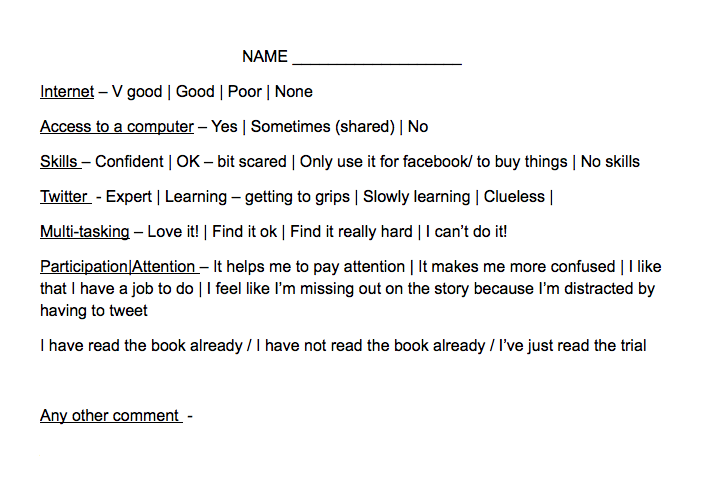
The replies have been extremely varied and seriously eye-opening. I’m only sorry I didn’t conduct an online survey – if I had I’d now have some lovely pie charts and graphs to share with you. Instead, it was a ‘grab a scrap of paper’ kinda thang, as the last five minutes of class flew past (I never feel like I have enough time with my students but that’s a story for another day). Anyway, in the spirit of the Eurovision, here are the results of the student jury:
INTERNET ACCESS: 66% have v.good or good internet; 15% mentioned that it can be very slow or only works in certain rooms in the house; and 19% have poor or no internet access.
COMPUTER ACCESS: 65% have access to a computer; 31% have access to a computer only sometimes because it’s shared; 4% had no access to a computer.
COMPUTER SKILLS: …[and believe me, I know this is the world’s most unscientific survey – ‘skills’ could mean anything – but I just wanted to get a general sense of their level of comfort using technology] 23% described themselves as confident; 54% felt they were ‘ok’ at using a computer, with some leaving out the ‘a bit scared’ addendum and others inserting and underlining it; 15% only use it to buy things and go on Facebook; and 8% described themselves as having ‘no skills’, with one student describing her computer skills as ‘laughable’.
TWITTER SKILLS: 27% are twitter experts; 50% are getting to grips with it; 19% are slowly learning and one student (4% in this sample) still feels clueless!
MULTITASKING: 39% love multitasking; 57% find it ok and 4% find it really hard.
PARTICIPATION / ATTENTION: Here the responses were much more nuanced. 58% said that it helped them to pay attention and many also included that they loved having a job to do. One student (who’s normally quite giddy) said “I feel like I’m paying way more attention”. Another said “It’s fine for now but I wouldn’t like to do it for the whole book”. One commented “It helps me pay attention cause if I don’t tweet it’s noticed”. Another said ‘It helps me to understand the story better’.
Meanwhile, 8% really didn’t enjoy the experience and felt like they were missing out on the storyline. The remaining 34% gave really interesting feedback – one said she read ahead every night (even though it wasn’t assigned for homework – I’m thinking maybe it should have been!) so she’d be prepared for the tweet up the next day. One said it was ‘fun and different’ but she was anxious about missing out on the storyline.
Quite a few felt ‘distracted’ but really liked having a job to do.
In the other comments section, one comment really stood out: “spending time teaching people to use the internet is annoying – it’s 2013!” (this was underlined!). Embarrassingly, I feel some of this sentiment may have come from me, as I did find myself astounded – and frustrated at times – at the amount of time it took to set up what I considered to be a really straightforward class project. I now need to find a way to differentiate so that those who are enjoying the experience continue to benefit and those who are finding it more of a hindrance don’t feel they ‘have’ to keep going. Ultimately, it was also a steep learning curve for me: it made me stop and think and question the assumptions I was carrying around with me about their access to and confidence with technology. As far as I’m concerned, that can only be a good thing, for them and for me!
ps I also asked two further questions the next day but left the room and got one of the students to count the answers because otherwise I felt I wouldn’t get an honest response. The question was “Did you look at other websites in class because you could once you had wi-fi on your phone?” The answer was yes from 35% of them which I was shocked by, but then the students asked me to clarify the question. Did I mean in the set up time while they were waiting for class to get going or while we were reading/tweeting the trial. I said I didn’t care if they were on wi-fi as the class were getting settled as long as they were on task once we got going, so really I just wanted to know how many of them were browsing websites other than twitter when they were supposed to be on twitter and on task. This figure then dropped to 17% and they said it was jut now and then, not all the time. Also, of the 5 students who said they had been distracted enough to look at other sites during class time, only one of them had not read the book in full already. I also had an interesting chat with our principal about my findings and she observed that lots of the time in a traditional classroom kids are doodling, or daydreaming to looking out the window, so not being on task is not exactly something new. I guess it was just weird knowing that while most of them were loving it, a tiny minority were faking engagement with the technology…




